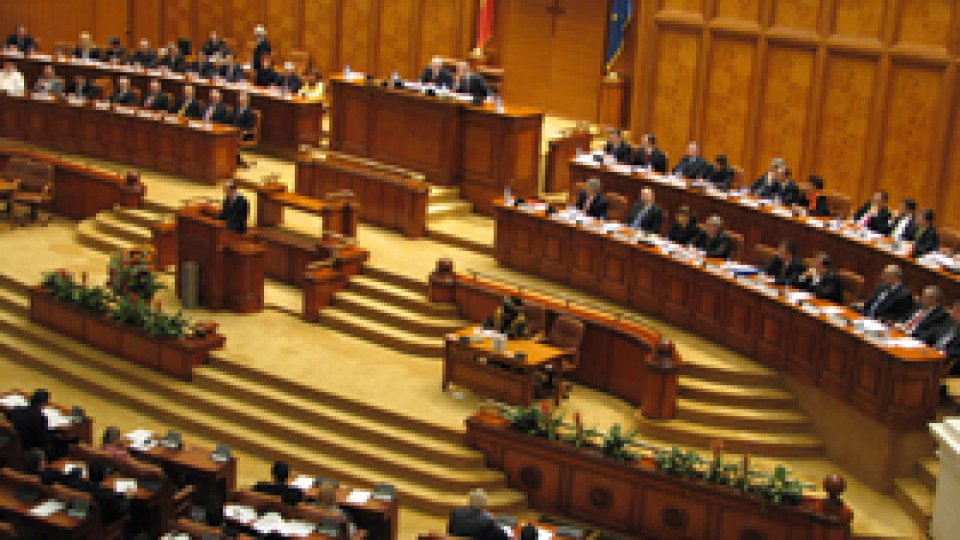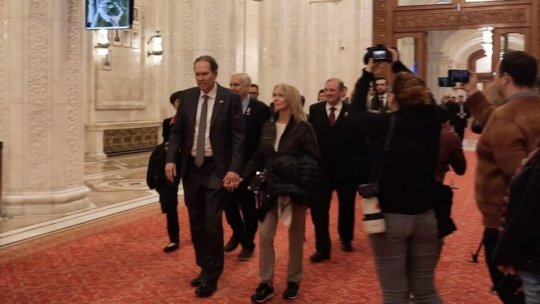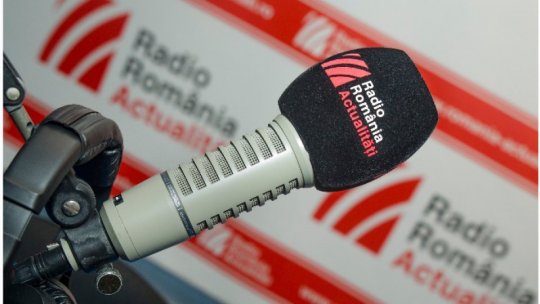The Parliament adopts the confiscation of assets project
The draft provides that not only the illegal fortunes have to be seized, but also the incomes resulted from this type of fortunes.

Articol de Paul Poteraşi, 29 Martie 2012, 07:44
According to Radio România Actualităţi reporter, Iulia Gherman, the document has been adopted in the Senate version and provides that many assets will be seized if the person who owns them was convicted for delinquent acts and also if the fact is susceptible in order to have a financial use and the penalty provided by the law is the imprisonment for five years or longer.
The extended seizure applies for those assets for which there are clues that they were illegally purchased by the convicted person for some delinquent acts specifies within the draft.
The delinquent acts are those of pimping, drug trafficking, human trafficking, border regime violations, money laundering, breaking the law on preventing and combating terrorism, initiation or setting of an organized criminal group.
Other sanctioned delinquent acts are trespassing of weapons and ammunition, nuclear and other radioactive materials, counterfeit currency , economic disclosing secrets, unfair competition, misappropriation of funds, failure to comply with the import of waste and residues, organization and operation of gambling, corruption and tax evasion scheme customs, fraudulent bankruptcy, through computer systems and electronic payment facilities, organ trafficking.
The law was adopted by nominal appeal
Initially, the legislative document did not gather the number of votes in order to be adopted. The electronic table registered only 162 votes, with 2 less that it is necessary.
The Liberal Democratic Party leader, Doru Leşe, has requested the repetition of voting process.
The Social-Democratic Marian Neacşu has opposed to this requesting.
At the meeting president’s proposal, the democrat-liberal Ioan Oltean, the draft law was submitted to the plenary by roll call.
The vote in the Chamber of Deputies has value decision on legal document that has started today by President Traian Băsescu to be promulgated.
The initial proposal was that all assets are considered illegal unjustified
On March 7 2011, at the balance of the public ministry activities, the general prosecutor of Romania, Codruţa Kovesi, was pleading for seizure the unjustified fortunes of those convicted.
“It often happens that some drug trafficker is confiscated only the amounts obtained from the last transaction or a corrupted clerk is confiscated only the last bribe and not to be possible the confiscation of his whole fortune that, obviously, could not have obtained from legal incomes.
It is inequitable and we cannot continue in this way”, declared Codruţa Kovesi.
In her opinion, the justice will be really effective when a convict will lose all the assets illegally obtained.
Codruţa Kovesi specified that then we will not see anymore situations in which delinquents assume the risk to spend some time in prison knowing that, after their liberation will drive luxury cars and live in villas illegally obtained.
The general prosecutor affirms that norms are necessary in order to rollover the proof task regarding the illegal character of convicted persons’ fortunes.
After that, on June the 1st 2011, the president Traian Băsescu declared that the legal character assumption of fortune from the Constitution was the screen under which, although they knew about illegal fortunes, they could not be confiscated, and the state could not recover the loss from those who made delinquent acts.
On June the 17th 2011, The Constitutional Court, with majority of votes, has discovered that is unconstitutional the elimination of the second thesis of the 44th article, paragraph 8 from Constitution, according to which “the legal character of acquisition presumes”.
On June 27, 2011, president Traian Băsescu was asking to parliamentarians to find a solution for transposing within the Romanian legislation the 212/2005 decision of the Justice and Intern Businesses Council (JAI), which refers to confiscating the fortunes illegally obtained.
In July 2011, the Justice Minister has launched within public debate the draft for modification and completion of the Penal Code through which was introduced the instrument of extended fortune seizure, reasoning that those existent did not contributed enough to assure the effective border cooperation within the field.
The Senate adopted the draft in December 2011.
The extended seizure can be applied only if the person is convicted for committing delinquent acts for which the law provides a penalty of five years imprisonment and if the value of his obtained assets, during a period of five years before the committing of criminal acts, “obviously overcomes his incomes legally obtained”, it is shown in the text adopted by the Senate.
The law in Romania, more lenient than in West
After adopting the draft regarding the extended confiscation of fortunes, the Romanian prosecutors have to prove the fact that the fortune was illegally obtained.
Not the same thing happens in some state from West.
U.S.A., the Great Britain and France go so far, in the case of confiscating the illegally obtained fortunes, that any citizen has to justify even the origin of any obtained coin, once this is suspect of breaking the law.
“In U.S.A., the asset seizure is very simple and happens irrespective of what name the property belongs. If it cannot be legally justified, then it is confiscated.”
“The problem in Romania is that assumption the fortune is legally obtained. I don’t believe that should exist such an assumption”, also stated in June 2011 the U.S.A. ambassador at Bucharest, Mark Gitenstein.
“Practically, it is about the reversion of the proof task: not the investigators are the ones who should prove the illegal origin of the fortune, but the suspects have to justify their assets.”
U.S.A. can preventively “freeze” a suspect’s fortune, in order to confiscate it after, even in the absence of proving a criminal act, if it is unjustifiable.
The Western states have the possibility to confiscate the relatives’ fortunes, or neighbours’ or even to culprit’s friends, if it is proved that the delinquents have transferred them money or assets, in attempting to lose their scent.
In France, the state institutions can confiscate also the fortunes of those who helped, even through silence, at hiding the real origin of the illegal fortunes.
In Great Britain, the police can confiscate any amount over than 1,000 pounds and of any asset whose value overcomes this limit, if the person stopped on the street, for a simple routine checking, cannot justify them.
Translated by Alexandra-Diana Mircea
MTTLC, Bucharest University









